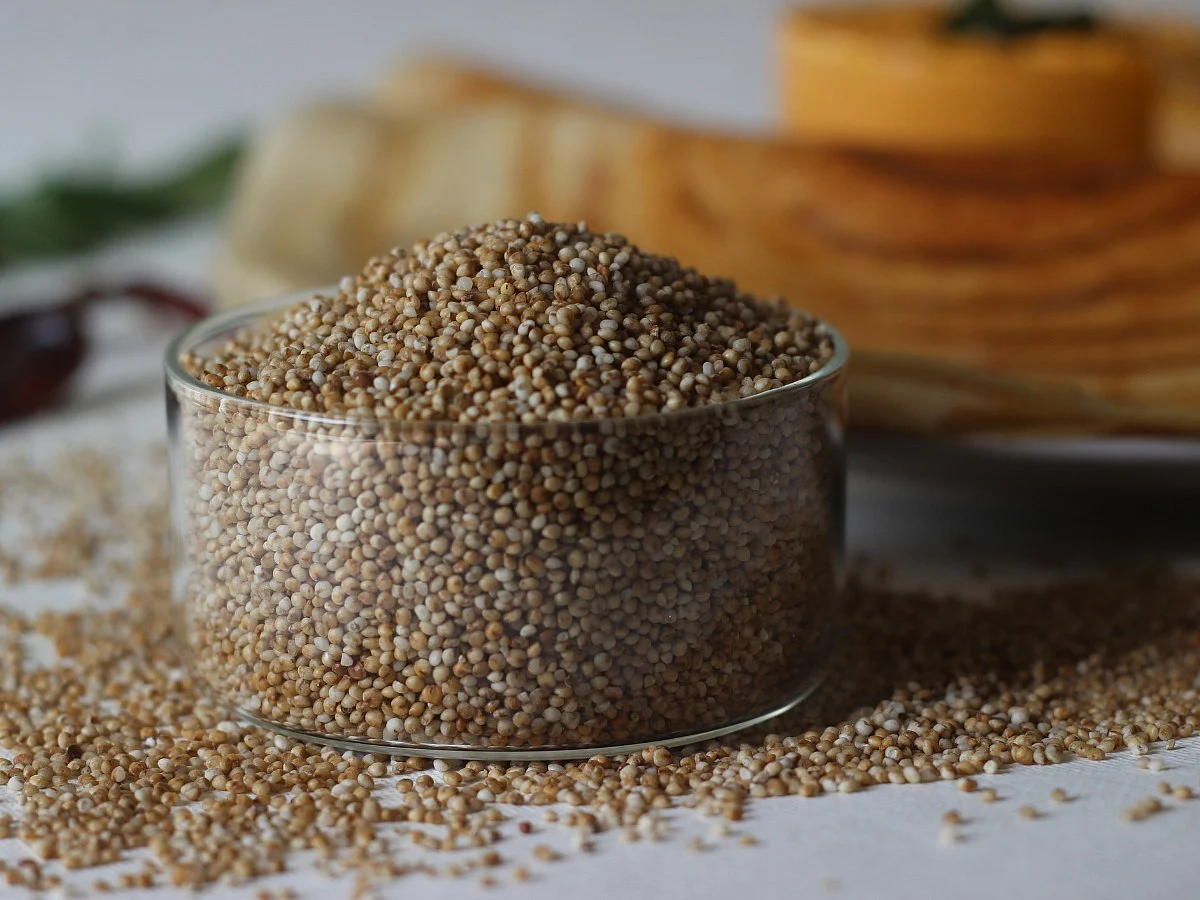5 Health Benefits Of Consuming Millets
Check the nutritional value and health benefits of consuming millets regularly.

advertisement
Millets are a group of cereal grains that belong to the Poaceae family, also known as the grass family. Millets are widely consumed in developing countries of Africa and Asia. It may look like seeds and their nutritional profile is similar to that of sorghum and other cereals.
Millets are also popular in the West since they are gluten-free and have high protein, fiber, and antioxidant content. They have multiple advantages over other crops like they are drought and pest resistance. They’re able to survive in harsh environments and less fertile soil.
These benefits are due to their genetic composition and physical structure. This crop is also divided into two categories — large and small millets. Let's know the health benefits of millet.
What Are 5 Benefits of Millets?
Rich in Antioxidants- Millets are rich in phenolic compounds, ferulic acid, and catechins. These molecules act as antioxidants and protect the body from harmful oxidative stress. Moreover, ferulic acid is linked to rapid wound healing, skin protection, and anti-inflammatory properties while catechins bind to heavy metals in the bloodstream to prevent metal poisoning.
Helps Maintain Healthy Blood Sugar Levels- Millets are rich in fiber and non-starchy polysaccharides- both are types of undigestible carbs that help control blood sugar levels. This cereal also has a low glycemic index (GI) thus it’s unlikely to spike the blood sugar levels which makes them an ideal grain for people with diabetes. People have experienced a slight reduction in fasting and post-meal blood sugar levels as well as a reduction in insulin resistance.
Helps Reduce Bad Cholesterol Levels- Millets contain soluble fiber that produces a viscous substance in your gut which traps fats and helps reduce cholesterol levels. Research proves that people who consume millet experience reduced triglyceride levels. Moreover, millet protein may help lower cholesterol and result in a significant increase in adiponectin and HDL (good) cholesterol levels. Adiponectin is a hormone with an anti-inflammatory effect, supports heart health, and stimulates fatty acid oxidation.
Aids Digestion- Millet is rich in both soluble and insoluble dietary fiber. The insoluble fiber is a prebiotic that supports good bacteria in the digestive system and adds bulk to stools thus keeping you regular and reducing the risk of colon cancer.
Extremely Nutritious- Millet is rich in potassium that supports kidney and heart health. Potassium also plays a role in nerve signal transmission, the process through which your brain and muscles communicate. The other nutrients include Vitamin A, vitamin B, Phosphorus, Potassium, Antioxidants, Niacin, Calcium, and Iron.